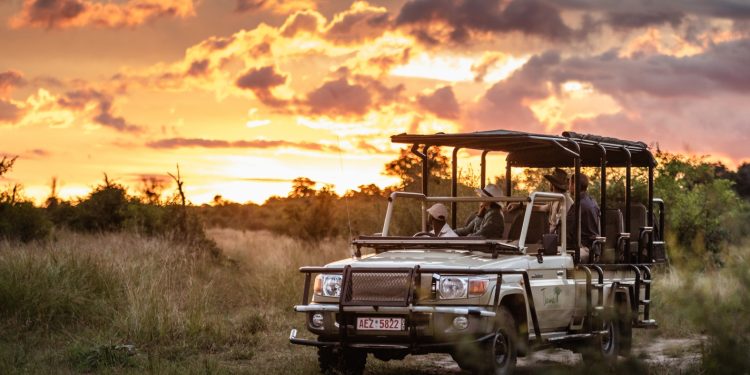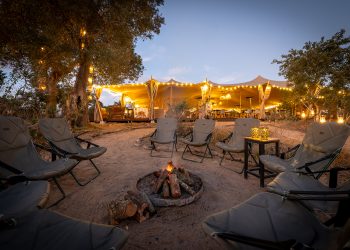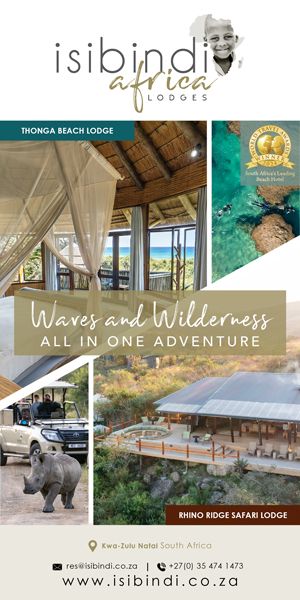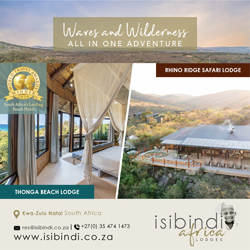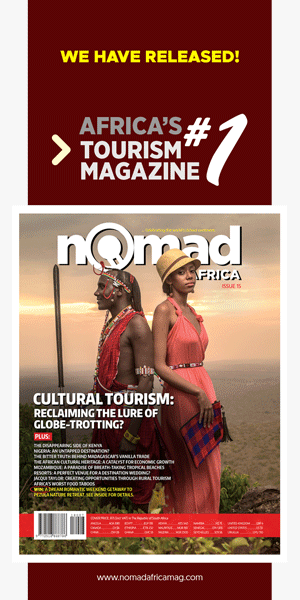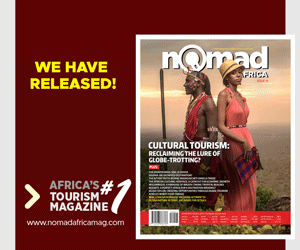Tucked away on a private island in the heart of the Zambezi River, Tsowa Safari Island, part of the Isibindi Africa Lodges collection, offers a secluded safari experience that blends relaxed luxury with deep sustainability. With just eight tented suites hidden in a lush riverine forest within Zimbabwe’s Zambezi National Park, Tsowa invites guests to step away from the rush of daily life and reconnect with nature in its purest form.
Ideal as a restful interlude on a Southern African safari circuit or as a stand-alone destination, Tsowa Safari Island delivers an immersive escape into a protected wilderness. From the moment guests cross the Zambezi by boat, the camp reveals itself quietly through the trees – a harmonious addition to its surroundings rather than an imposition on them.
The story of Tsowa is as much about its setting as it is about its creation. Each safari tent was carefully positioned to ensure privacy while preserving the island’s delicate ecosystem. The placement of each structure was mapped by foot, tree by tree, over months of meticulous surveying. “No trees were cut down,” explains co-owner and engineer Duncan Elliot, who led the build. “We designed around the vegetation. What you see is the result of working with nature, not against it.”
The concession on which Tsowa is located had remained undeveloped for decades, its remote location and complex logistics deterring investors. All materials had to be transported through the park, then ferried by boat across the river to the island, making construction all but impossible. This challenge became the project’s greatest strength, forcing the design towards light, tented structures that could be constructed with minimal environmental disturbance.
Lucy Mavango, co-owner and proud Zimbabwean, who secured the concession through Zimbabwe Parks & Wildlife Management Authority, had long dreamed of creating a lodge on the island. But, despite several attempts, she was unable to develop it alone or with other partners. It was only when she connected with Isibindi Africa founders Brett and Paige Gehren that the vision found the right partners.

Brett brought decades of sustainable tourism experience, Lucy brought her deep local knowledge and commitment to Zimbabwe’s tourism sector, and Duncan brought the technical expertise to turn environmental ideals into reality. The trio formed a partnership bound by the same principle: Tsowa would be built on the island’s terms, not the other way around.
Construction began gently, with boots on the ground. For weeks, Duncan and Brett, walked the island, hammering pegs into the earth to mark potential sites for the tented suites and the main lodge. They would move a peg a metre to the left to save a sapling, then shift another to preserve the root system of a mature tree.



Only scrub and undergrowth were cleared – vegetation that would regenerate within a single rainy season. No mature trees, and not even saplings, were removed. In one instance, a small Natal mahogany sapling growing through a bench was spared; Duncan insisted the interior designer adapt her cushion design to accommodate it. “It may look small now,” he told her, “But one day it will be a beautiful big tree.” The cushion was altered; the tree stayed.
The main lodge opens onto sweeping river views framed by waterberry trees, where guests can relax on deep sofas or cool off in the pool. Throughout, natural ventilation, low-impact tented structures, and a palette of earth tones and organic materials ensure the camp feels part of the island’s fabric.
Tsowa’s environmental ethos extends far beyond its sensitive construction. Solar power runs the camp, biodegradable toiletries are provided, and laundry is hand-washed. And, through the Isibindi Foundation, every stay contributes to conservation and community projects, including anti-poaching initiatives, local employment, training, and skills development. This commitment reflects the ethos Brett and Paige have championed across the Isibindi Africa portfolio for more than 29 years.
All activities are low-impact – ranging from game drives in the Zambezi National Park to canoeing safaris through island channels, birding expeditions, and immersive island walks. Tsowa is a renowned birding destination, home to species such as Pel’s fishing owl, Schalow’s turaco, bee-eaters, and the rare African finfoot. With evenings best spent drifting downstream on a sundowner cruise or gathered around the firepit, sharing stories beneath the stars.
Whether included in a broader safari itinerary or chosen as a sole escape, Tsowa Safari Island offers a rare combination of wilderness immersion, considered luxury, and meaningful impact. As Lucy Mavango reflects: “Tsowa is not only a destination, but also a chance to be part of something purposeful.”


